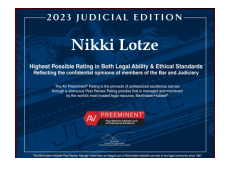Weekends, holidays, and celebratory occasions throughout Washington D.C. and the State of Maryland often bring DUI checkpoints to the areas, in an attempt to ensnare potentially intoxicated drivers in larger numbers.
Whether it is the Metropolitan Police Department, or local authorities throughout Maryland, law enforcement officials are legally allowed to investigate drivers for driving under the influence without reasonable suspicion of wrongdoing by operating a sobriety checkpoint.
How Does A DUI Checkpoint Work?
DUI checkpoints are set up by placing roadblocks in specific areas throughout the city, where police officers will randomly select passing vehicles to check for possibly impaired or drunk drivers.
When stopped, the officer on the scene will direct the driver to roll down their window, and typically requests a driver’s license, registration, and proof of insurance. Based on the initial conversation and documents request submission, the officer will look for signs of impairment, including the smell of alcohol, red eyes, or another symptom of apparent intoxication. Afterward, the officer may ask the driver to exit the vehicle to undergo a field sobriety test.
What If I Refuse To Participate In The Field Sobriety Test?
Refusing to submit to a field sobriety test can result in an automatic arrest. While people give different reasons for not submitting to the test, the result can also include a lengthy license suspension.
How Is A DUI Checkpoint Different From A Normal DUI Traffic Stop?
DUI checkpoints are deemed Constitutional by the U.S. Supreme Court, with the overall goal of removing dangerous drivers from the roads, before they are able to harm anyone. This gives the police department conducting the checkpoint the liberty to stop cars randomly, in any pattern they see fit.
That is very different than a DUI traffic stop, where the officer must establish that there was reasonable suspicion of a traffic violation or criminal activity taking place before the driver can be stopped.
How Can Lotze Mosley, LLP Help Defend Me After A DUI Checkpoint Arrest?
At Lotze Mosley, LLP our DUI defense attorneys in Washington D.C. and Maryland know that an arrest at a DUI checkpoint does not necessarily mean there is enough evidence to convict you.
In fact, our DUI defense lawyers focus on the sobriety checkpoint and challenge the operation itself, including the increased pressure on the officers to produce results. Officers who are not familiar with administering field sobriety tests, or even using breathalyzers, can botch the results, which could lead to the evidence being excluded altogether.
Each DUI case is unique, and the circumstances of your arrest will vary from another, which is why it is important to retain an accomplished criminal defense lawyer to represent you in court.
DUI penalties can include a suspended license, fines, community service, alcohol counseling, jail time, or any combination of those penalties. If you are facing DUI charges, contact our experienced DUI attorneys at Lotze Mosley, LLP in Washington D.C. and Maryland today by calling (202) 393-0535 to learn how we can help you move forward with confidence.













